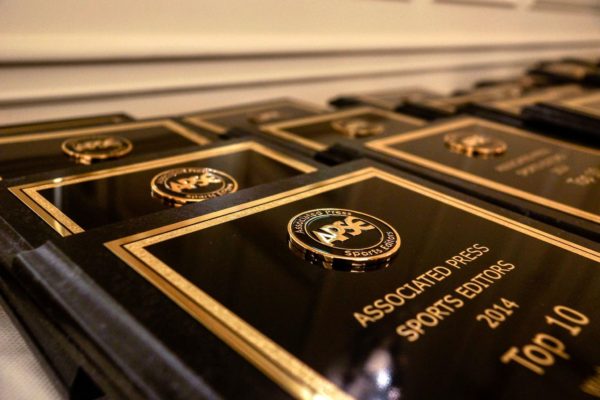By Stephanie Loh, The Patriot-News
STATE COLLEGE, Pa. – At the APSE Mid-Atlantic Regional Meeting, several senior Penn State journalism majors got to pepper a roomful of sports editors with questions about how to navigate the road ahead.
This “reverse panel” was the brainchild of Pittsburgh Post-Gazette Sports Editor Jerry Micco, and it capped a day full of panel discussions at The Penn Stater. Other students sitting behind the editors listened to the exchange.
The questions came couched in a variety of different ways, but ultimately, the students really wanted to know one thing: How can I best position myself to get a job in journalism after I’m done with school?
Micco’s wise words: Be patient.
Micco pointed out that while ambition and drive are all good qualities to have, too many young journalists come into the business with big dreams of becoming national columnists or NFL writers, then get disheartened and drop out of journalism if they can’t snag those plum jobs within a couple of years.
The students were very curious about which platform they should steer their careers toward: websites or traditional media sources such as newspapers.
So the editors took that opportunity to remind everyone that the fundamentals of reporting – investigative skills, sound news judgment, and storytelling ability – will always matter much more than the medium.
To illustrate the point, Washington Post reporter Sally Jenkins held up a glass and poured water into it. “The glass is just a vessel,” Jenkins said. “You have to fill it.”
Jenkins had another piece of sound advice for the students.
“Find out what obsesses you as a writer and follow that,” she said, echoing advice she’d gotten from a mentor when she was just starting out in her career.
The conversation then turned to the matter of specialization.
“Is it helpful to specialize in one sport from the get-go?” the students asked.
This time, the responses differed.
Ben Brigandi of the Williamsport (Pa.) Sun-Gazette said he expects any potential hires to be comfortable covering the “big three” – football, baseball, and basketball.
But, as Brigandi pointed out, if you’re applying to a newspaper in Texas and you insist that you want to be a hockey writer, that probably won’t work out so well.
In the end, Josh Barnett of the Philadelphia Daily News offered this helpful nugget, “You can specialize in a sport if you want, but specialize in people first.”
Because that’s what sports journalism is fundamentally about. We’re in the business of telling people’s stories.





